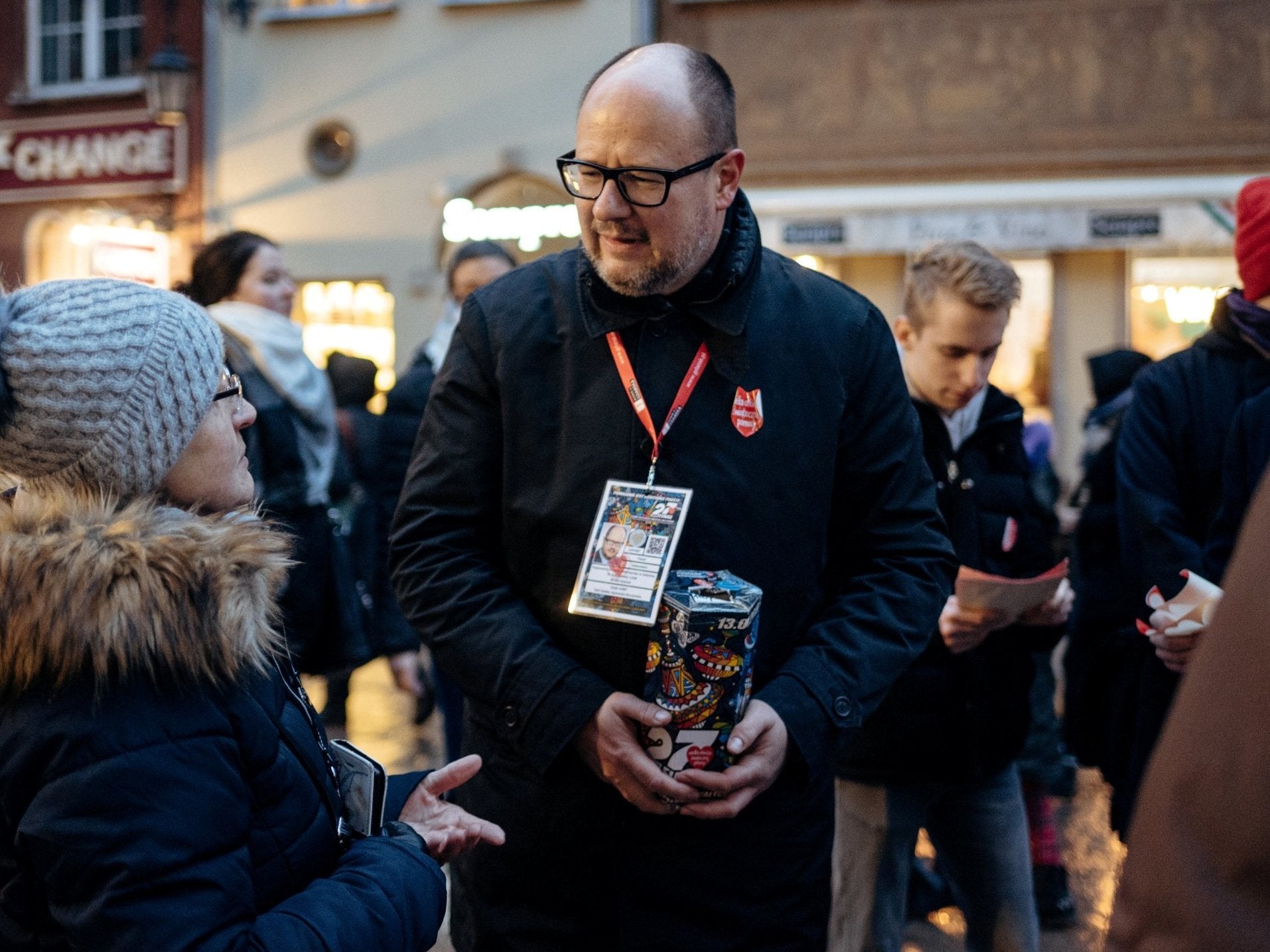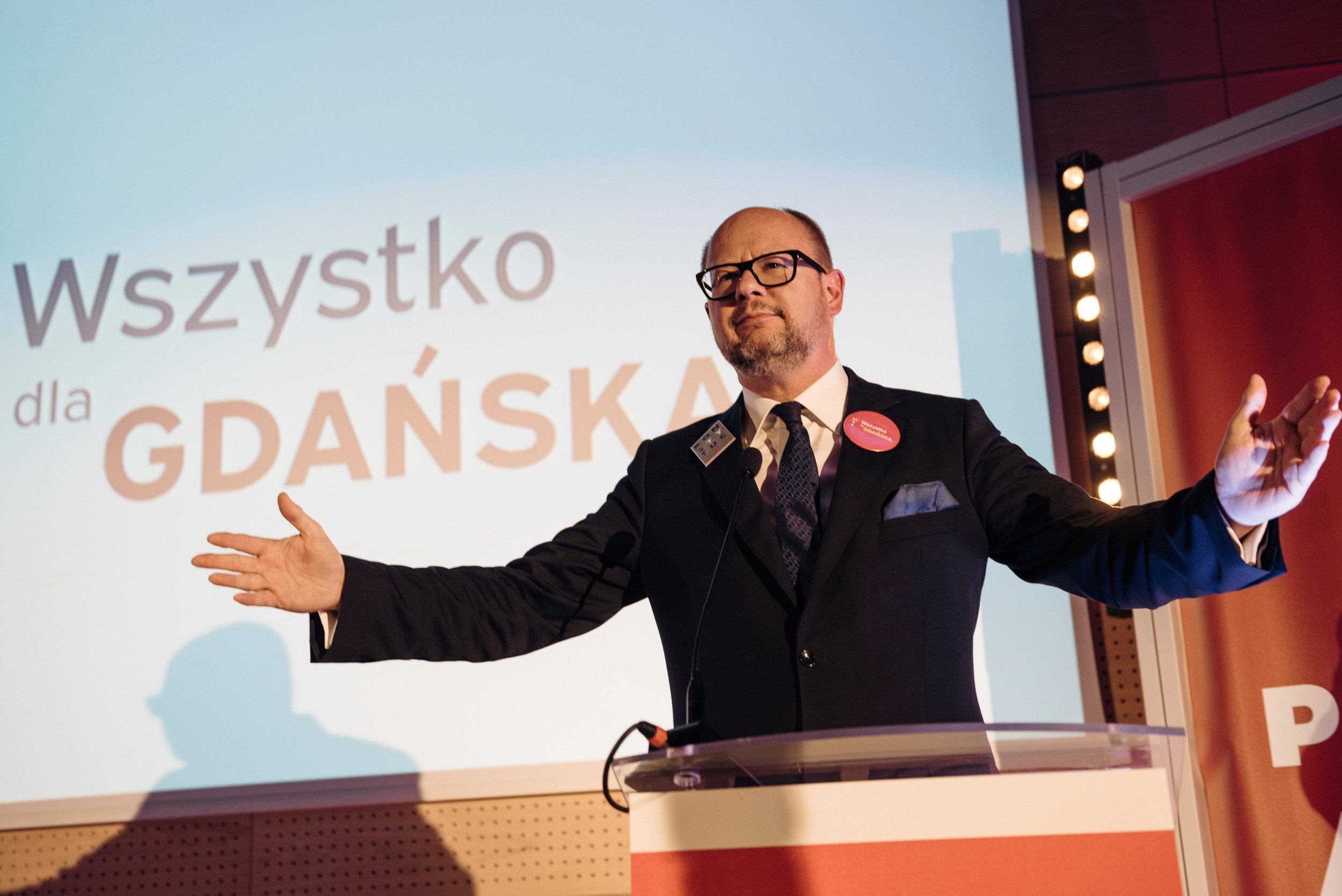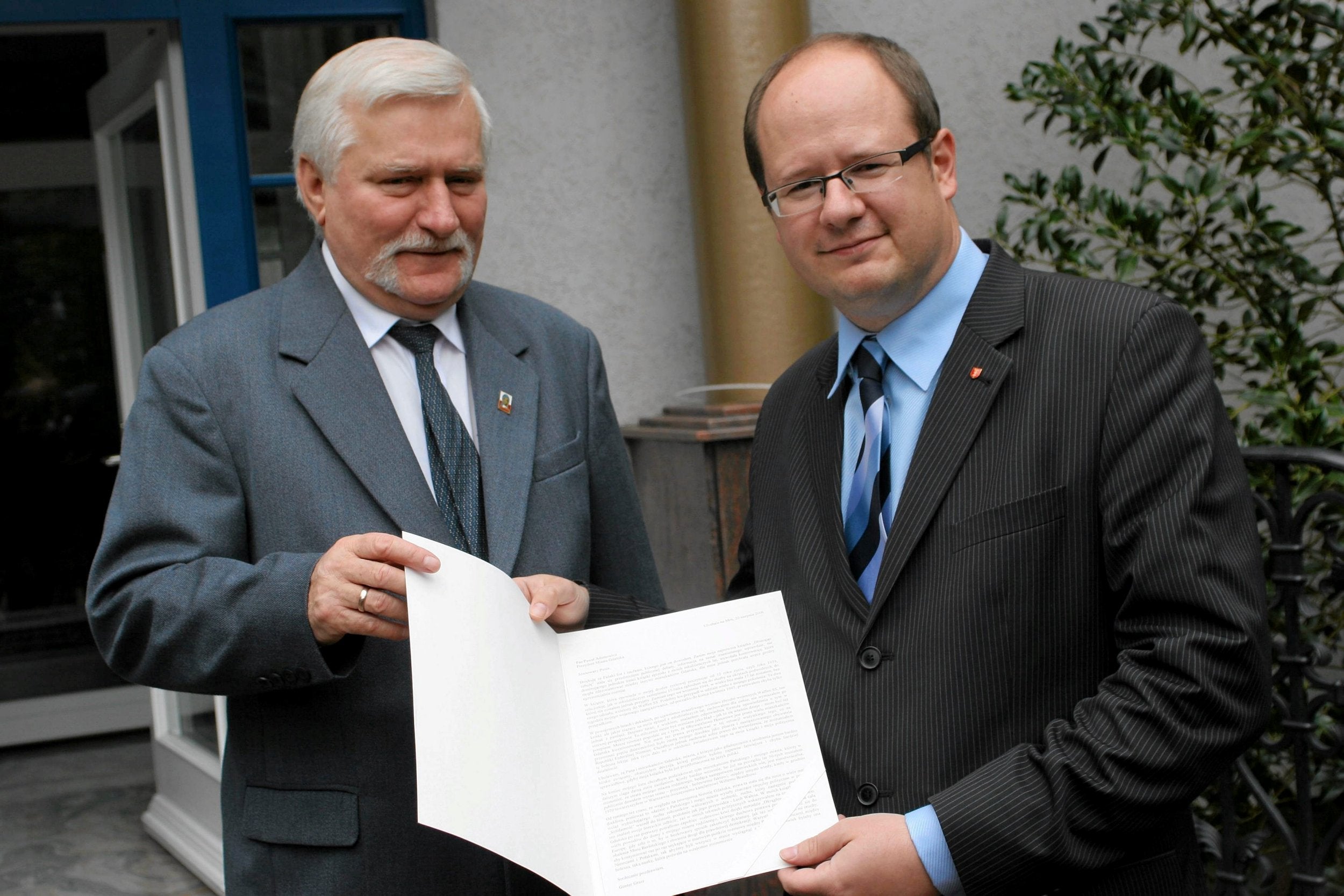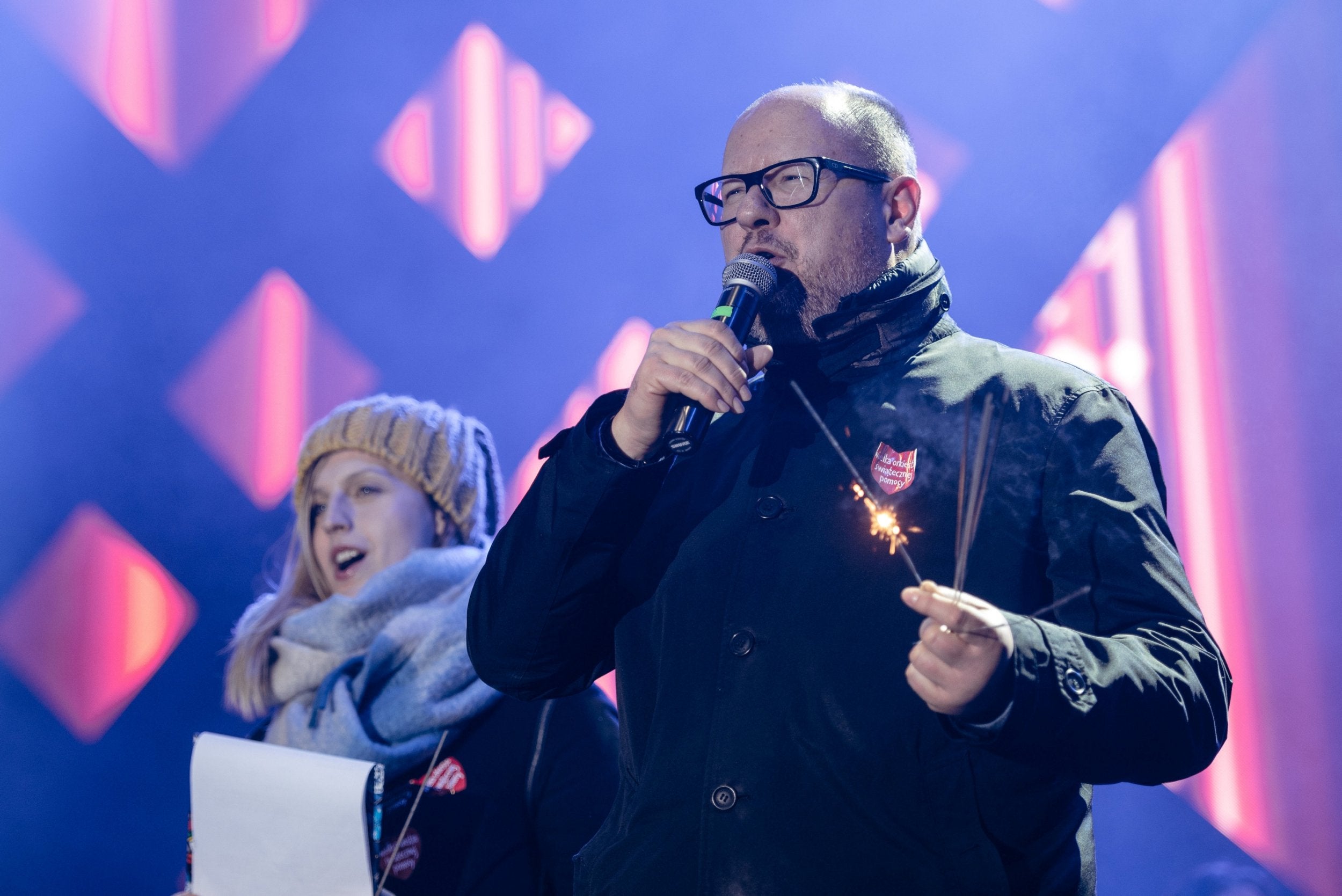Pawel Adamowicz: Gdansk mayor and standard-bearer for civil rights and liberal values in Poland
A proud Christian and patriot, the much-loved politician spoke out against bigotry in a country of whose rising hate crime he became a victim

Your support helps us to tell the story
From reproductive rights to climate change to Big Tech, The Independent is on the ground when the story is developing. Whether it's investigating the financials of Elon Musk's pro-Trump PAC or producing our latest documentary, 'The A Word', which shines a light on the American women fighting for reproductive rights, we know how important it is to parse out the facts from the messaging.
At such a critical moment in US history, we need reporters on the ground. Your donation allows us to keep sending journalists to speak to both sides of the story.
The Independent is trusted by Americans across the entire political spectrum. And unlike many other quality news outlets, we choose not to lock Americans out of our reporting and analysis with paywalls. We believe quality journalism should be available to everyone, paid for by those who can afford it.
Your support makes all the difference.On the second Sunday of this month, the city of Gdansk hosted one of Poland’s biggest annual charity events at which tragedy unfolded – the city’s mayor, Pawel Adamowicz, was stabbed to death on stage full view of the thousands present.
Shock reverberated around a country that was shaken to the core – tens of thousands took to the streets, with expressions of solidarity erupting further afield, in countries such as Russia, Lithuania and Ukraine, too.
First appointed mayor in 1998, Adamowicz’s career was marked by a lifelong dedication to public service, the advancement of local governance and progressive values – he was an advocate of rights for LGBT+ people, immigrants and other minorities.
Last year he was honorary patron of Gdansk’s fourth annual Gay Pride event.

This was remarkable given that he was a religious conservative: a recipient of golden cross from Pope John Paul II, in 2003 he was awarded Poland’s cross of merit by President Aleksander Kwasniewski.
Adamowicz, a tall, avuncular figure, was not afraid to take on the extreme right in speaking out for the underdog. In 2016, against the backdrop of the rise of Poland’s Law and Justice Party, and a rise in hate crime he declared: “The arrival of Christ was the very example of migration.”
He was born in Gdansk in 1965, the second child of Ryszard and Teresa Stuńdzia, economists who relocated in 1946 from Vilnius (now the capital of Lithuania, it had been part of Poland before the Second World War).
Pawel and his brother Piotr, a journalist who was born in 1961 – who along with their parents survives him – were raised in a religious and patriotic household that was suspicious of the ideology and propaganda of the communist state.
It was while still in high school in the early 1980s, Pawel became politically active. Gdansk was the birthplace of Poland’s Solidarity movement, which Pawel became involved with, and at the heart of a growing opposition to communist rule.
In high school he edited an underground newspaper called Jedynka – or “number one” – and later while studying law at the University of Gdansk he was the leader of the students’ strike committee.

In 1990, a year after the fall of communism in Poland, Adamowicz was elected to Gdansk city council, of which soon after he became the chair.
In 1998, he was appointed mayor of the city, an office which in 2002 he was voted into following constitutional changes which gave more power to local governments and the first direct elections. In November 2018, he was re-elected as mayor, and this year he began his sixth term in office.
Throughout the two decades that Adamowicz was mayor, Gdansk underwent immense transformation. The city, which he proudly called “the birthplace of freedom and solidarity”, not only invested in infrastructure and cultural development, but also showed its commitment to promoting democratic values. Thus, among his flagship initiatives was the European Solidarity Centre – a museum and library which commemorates and celebrates the legacy of solidarity and freedom movements throughout the world.

The centre was awarded the Council of Europe’s Museum prize in 2016.
Adamowicz, who is survived by his wife, Magdalena and their two daughters Antonina and Teresa, will be remembered as a man of conviction. He was a devout Catholic who strongly believed in universal human rights and the rule of law. Being a locally involved patriot with a global approach, he opened the city’s door to the wider world.
He believed that Gdansk should not turn its back to those affected by war and poverty and welcomed migrants and refugees to settle there, just as his parents did after the war. To help newcomers settle, Gdansk implemented, under his initiative, the “Immigrant Integration Model” – the first of its kind in Poland.
With his many local and global initiatives, including the funding to set up a publication called New Eastern Europe in 2011, Adamowicz has left behind an impressive legacy of dialogue, tolerance and mutual respect.
And that is why the tragic nature of his death must be a wake-up call to change the quality of political discourse in Poland.
Adamowicz himself was a frequent target of insinuations and personal attacks in the media. Undoubtedly this toxic environment played a role in his death, even if indirectly. Perhaps, one of Adamowicz’s key messages is that only through a return to civility in political disagreements can we find a way forward.
Speaking to The Guardian, Anna Mydlarska, the European Solidarity Centre’s head of documentary film, noted that Adamowicz liked to quote the motto of Gdansk: “Nec temere, nec timide – neither rashly or timidly.”
Pawel Adamowicz, politician, born on 2 November 1965, died 13 January 2019
Adam Reichardt is editor-in-chief of ‘New Eastern Europe’, a bimonthly journal co-published by the European Solidarity Centre in Gdansk and the Jan Nowak-Jezioranski College of Eastern Europe
Join our commenting forum
Join thought-provoking conversations, follow other Independent readers and see their replies
Comments